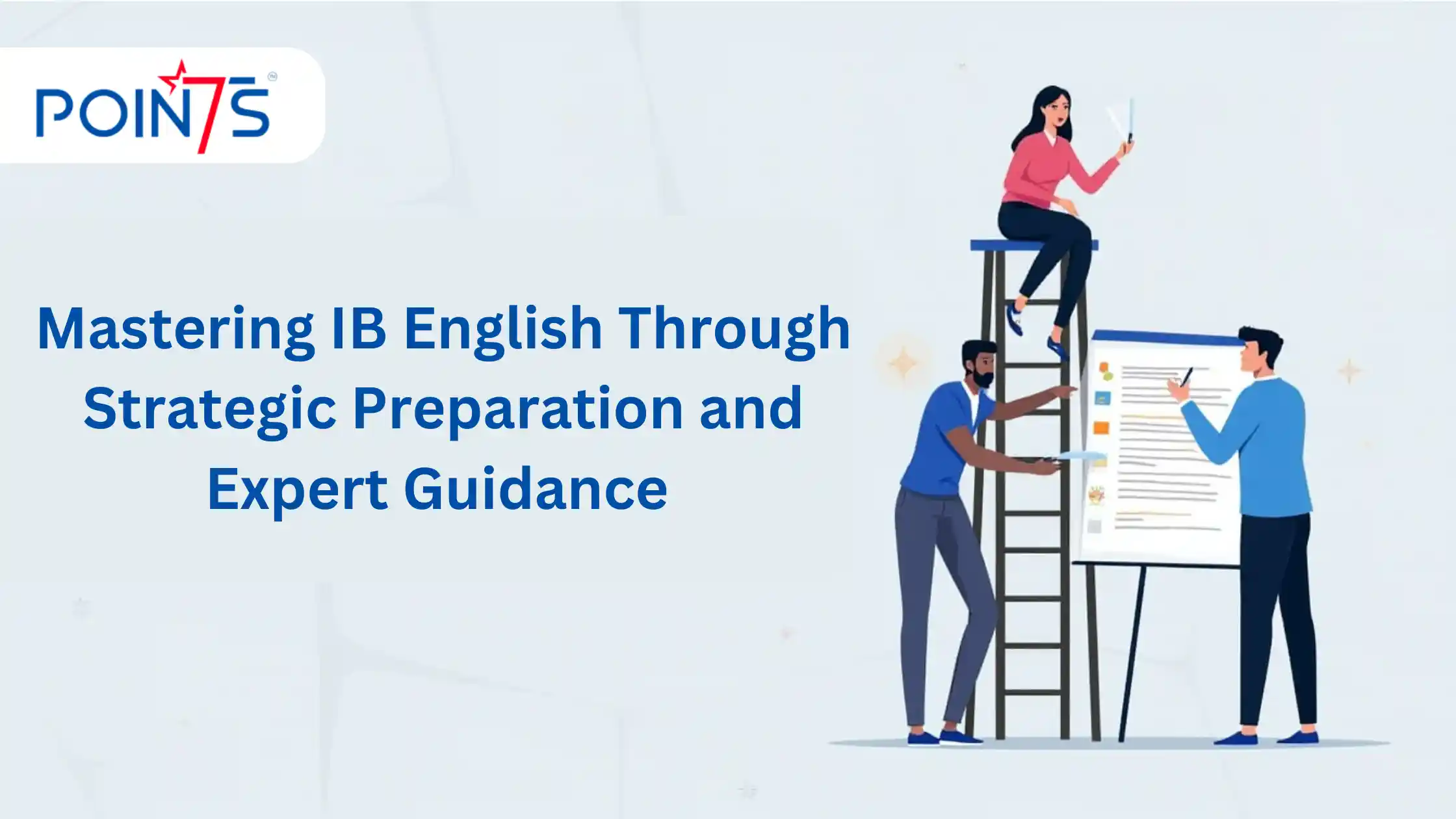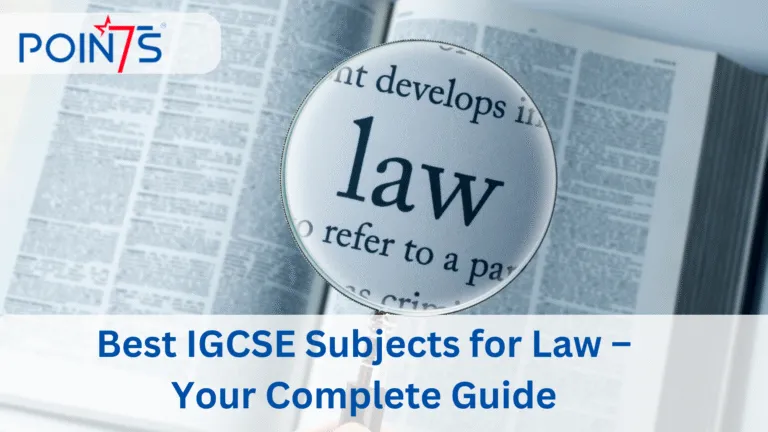Choosing IGCSE subjects can feel overwhelming, especially when you’re aiming for academic balance, strong grades, and a manageable workload. While some subjects are academically intense, others offer a lighter curriculum, a more practical approach, or flexible assessment methods. This doesn’t mean they’re less important, just more accessible for many learners.
If you’re currently deciding between ICSE or IGCSE, understanding the structure and flexibility of the IGCSE curriculum can help you make a more confident choice. Many students and parents turn to IGCSE tutors for guidance, especially when it comes to subject selection and planning a smart academic path. Let’s look at ten IGCSE subjects that are widely considered easier to learn and score well in, and understand why they work so well for many.
English as a Second Language (ESL)
Why it’s considered easy:
This subject is designed specifically for non-native English speakers. It focuses on developing real-world communication skills, including reading comprehension, writing basic texts, understanding spoken messages, and expressing ideas clearly in speech.
Assessment style:
Instead of long literary essays, students tackle emails, notices, audio-based questions, and short passages. The subject tests how well students can use English in practical situations, which often feels more natural and relevant than traditional English literature studies.
Who it’s for:
Ideal for students who have a basic command of English but don’t want to get into deeper literary analysis or complex grammar rules.
Mathematics (Core Curriculum)
Why it’s considered easy:
Unlike the Extended syllabus, the Core version limits itself to foundational topics such as basic algebra, simple geometry, number operations, graphs, and data handling. It avoids the more complex areas of trigonometry, calculus, and algebraic functions.
Assessment style:
Papers are focused on understanding concepts rather than advanced problem-solving. Students can build skills steadily without feeling overwhelmed.
Who it’s for:
A great option for those who want to build basic numeracy skills or don’t plan to pursue Math-heavy subjects later. Also useful for students comparing ICSE and IGCSE, since ICSE Math tends to be more advanced.
Business Studies
Why it’s considered easy:
The concepts in Business Studies are practical and often relatable, such as marketing, entrepreneurship, customer service, finance, and operations. Students find it easier to grasp because they can link these ideas to real-life businesses or current events.
Assessment style:
Case studies, short answers, and structured essays all focus on applying knowledge rather than memorising textbook content. The curriculum is designed to help students think logically and make informed decisions.
Who it’s for:
Ideal for students curious about how businesses work or who may want to pursue management, commerce, or entrepreneurship in the future.
Environmental Management
Why it’s considered easy:
This subject is a mix of geography and science. It explores current global issues such as pollution, renewable resources, sustainable development, and climate change. The topics are relevant and engaging, often taught through case studies and projects.
Assessment style:
Exams typically ask for interpretation of real-world data, charts, and simple problem-solving. Coursework and fieldwork, if offered, allow students to score through participation and observation.
Who it’s for:
Perfect for students who care about the environment and want a science-related subject without heavy lab work or deep theoretical science.
Global Perspectives
Why it’s considered easy:
Instead of memorising facts, this subject encourages students to think. Learners explore global issues like poverty, education, conflict, and identity through critical analysis, collaboration, and research.
Assessment style:
There are no traditional written exams. Students complete a research project, written reports, and presentations. It suits students who enjoy open discussions, independent learning, and expressing opinions clearly.
Who it’s for:
Recommended for students who are analytical, opinionated, or planning to pursue careers that value research and international understanding, such as journalism, law, or social science.
Information and Communication Technology (ICT)
Why it’s considered easy:
ICT is all about using technology effectively. Students learn how to create documents, use spreadsheets, design simple websites, and work with basic databases skills most teens already use in their daily lives.
Assessment style:
A large part of the exam focuses on practical computer-based tasks. Students are assessed on how well they can use software rather than how much theory they can memorise.
Who it’s for:
Best for students comfortable with computers and looking to build digital skills that apply to nearly every field today, from science and business to arts and engineering.
Art and Design
Why it’s considered easy:
This subject allows students to express themselves through drawing, painting, photography, or mixed media. There’s no rigid academic content, and students can work at their own pace.
Assessment style:
There’s little to no written examination. Instead, learners submit a portfolio showing their creative process, experimentation, and final artwork. It’s a continuous assessment model, which relieves exam pressure.
Who it’s for:
Great for visual learners, creative minds, and those who enjoy working on long-term projects instead of writing tests.
Physical Education (PE)
Why it’s considered easy:
PE involves understanding sports theory, body systems, fitness, psychology, along with practical participation in sports. For students who are active or passionate about games, this subject feels natural.
Assessment style:
The subject is split into theory and performance. Practical assessment is done on the student’s actual involvement in different sports, which helps balance the written component.
Who it’s for:
Perfect for athletic students or those who want to take a break from traditional classroom learning. Also popular with those planning to study sports science or physiotherapy later.
Travel and Tourism
Why it’s considered easy:
This subject offers insights into the travel industry, customer service, global destinations, and tourism planning. It’s filled with real-life applications, which makes it both useful and engaging.
Assessment style:
Topics are tested through case studies, scenario-based questions, and simple theory. There’s very little technical or mathematical content.
Who it’s for:
Great for students who enjoy exploring global cultures, have an interest in hospitality, or want to work in customer-facing industries in the future.
Combined Science
Why it’s considered easy:
Instead of studying Physics, Chemistry, and Biology separately, which can be intense, students take Combined Science — a condensed syllabus that touches upon key ideas from all three areas.
Assessment style:
Simpler and shorter assessments, with fewer lab requirements and theoretical depth. The focus is on understanding and applying basic scientific concepts.
Who it’s for:
A smart choice for students who want a science subject without committing to three. It’s also recommended for those exploring ICSE or IGCSE, as ICSE sciences are usually more detailed and rigorous.
ICSE or IGCSE: Which One is Right for You?
When comparing IGCSE vs ICSE, it really comes down to your learning style. ICSE offers a strong academic foundation, particularly in English and Math, and is recognised across Indian universities. IGCSE, on the other hand, offers global relevance, more flexibility in subjects, and a focus on practical application.
If you’re planning for international universities or prefer coursework and case studies over heavy theory, IGCSE might suit you better. Many students and parents consult IGCSE tutors early on to understand which board fits their strengths and how to plan a smart academic path.
If you’re still undecided, Points Edulabs offers expert guidance for both ICSE and IGCSE students. Their team can help assess your academic profile, recommend suitable subjects, and provide personalised coaching that makes learning efficient and enjoyable.
Final Thoughts
Choosing easy subjects doesn’t mean compromising your future. In fact, selecting subjects that suit your strengths, learning style, and goals can lead to better performance and greater confidence. If you’re still unsure about your path, or debating between ICSE or IGCSE, speaking to subject experts or IGCSE tutors can help make the decision clearer.
At Points Edulabs, students receive personalised attention, strategic guidance, and dedicated support across all IGCSE subjects, including these easier, high-scoring options. Making smart choices early can pave the way for success.
Frequently Asked Questions (FAQs)
1. What is the easiest subject to take in IGCSE?
The easiest subject depends on your strengths and interests. Many find English as a Second Language (ESL) easier because it focuses on practical communication skills rather than complex literature. Business Studies and Mathematics Core are also considered manageable due to their straightforward syllabus. Ultimately, the best choice is the one that fits your learning style and future plans.
2. Which Cambridge subject is easiest?
The easiest Cambridge subject varies for each student based on their skills. Subjects like English Language and Mathematics Core tend to be more accessible because they focus on fundamental concepts. Business Studies is another popular choice since it uses practical examples. It’s important to pick subjects you enjoy to perform well.
3. Is it OK to take 5 subjects in IGCSE?
Yes, taking five subjects in IGCSE is acceptable and often recommended for students who want to focus deeply on fewer areas. This helps manage workload and reduce stress while allowing you to build strong knowledge in selected subjects. However, some universities or courses may require more subjects, so it’s wise to check those requirements. Consulting with your school or tutors will help make the best decision.
4. Are IGCSE board exams easy?
IGCSE exams are designed to be fair but can be challenging depending on the subject and your preparation. Success requires consistent study, good understanding of the syllabus, and exam practice. The grading system rewards strong performance, so preparation is key. With the right approach, most students can perform well.
5. What is the easiest IGCSE science subject?
Combined Science is often seen as easier because it provides a broad overview of biology, chemistry, and physics without too much depth in any one area. Biology is usually easier for students who prefer memorization and real-world concepts rather than heavy calculations. Environmental Management also appeals to science students interested in practical issues. Your choice should match your interests and future goals.
6. What subject is easiest to get a star in?
Subjects like English as a Second Language (ESL) and Business Studies are often easier to score top grades in due to their practical assessment style. Mathematics Core can also be accessible with regular practice. However, earning a star depends on your effort, understanding, and exam technique. Consistent study and targeted revision help achieve the best results.




